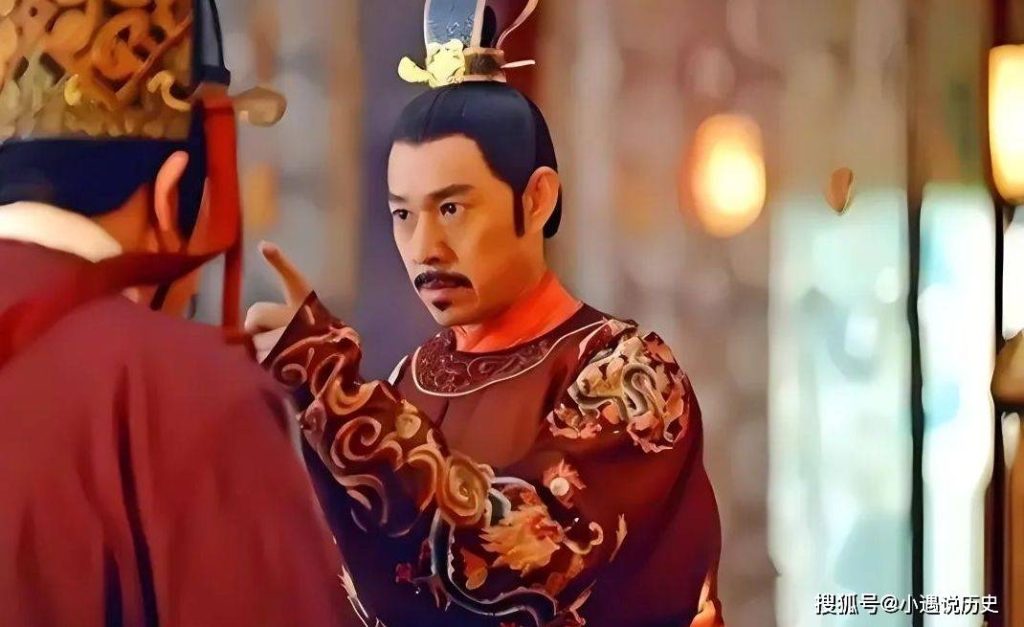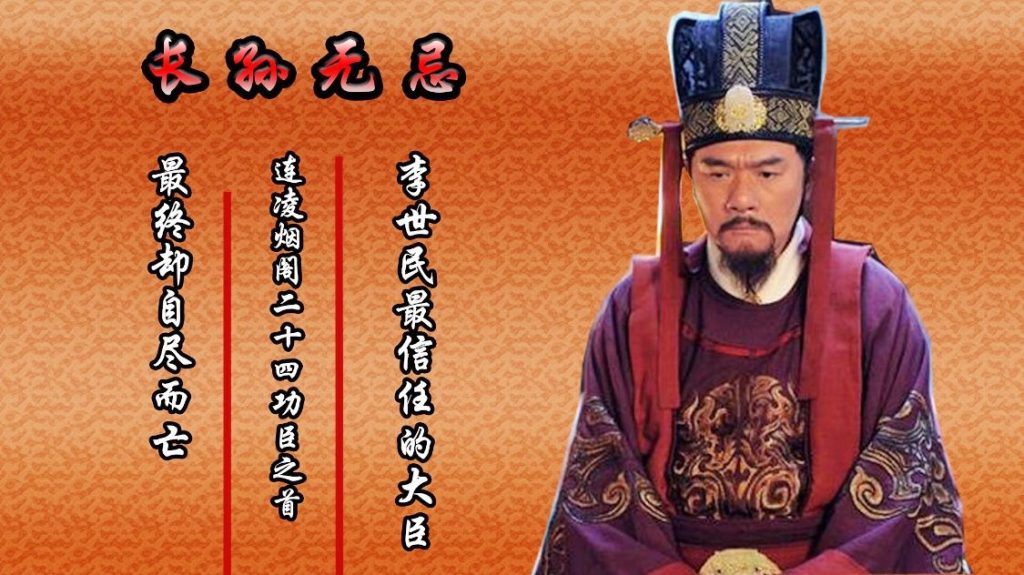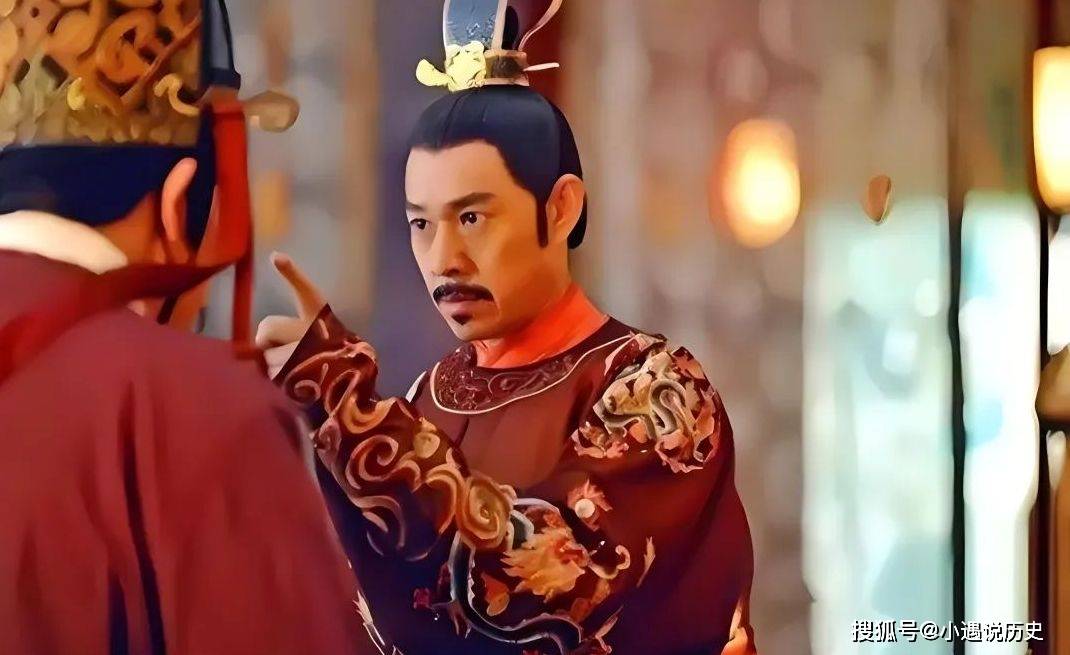In the ninth year of Xiantong, in front of the Golden List in Chang’an City, there were crowds of people, some ecstatic and some heartbroken. A young man stretched his neck from the top of the list to the bottom, confirmed several times, and finally accepted the reality of being unknown on the list. He squeezed out the crowd in confusion, clenched his fists, and quickly left Chang’an City.

This year, Huang Chao, who participated in the scientific examination again, failed once again. Years of hard work eventually turned into a void, and a huge sense of loss completely angered this young man who came from a salt trader background. It seems that this path is impossible to change his fate through legitimate means. Although Chang’an City is bustling with prosperity, he is welcomed by bitter winds and rains.
Leaving Chang’an, Huang Chao crushed all disappointment, sadness, and sorrow along the way, and finally turned them into anger, which was written down in words: When autumn arrives on the eighth day of the ninth month, I will bloom and kill with flowers, and the fragrance will penetrate Chang’an, filling the city with golden armor. This poem not only expresses Huang Chao’s anger, but also embodies his infinite aspirations. From this poem, we can also see that Huang Chao’s literary talent is indeed good. So why was such a talented and ambitious young man repeatedly defeated in the imperial examination?
In fact, Huang Chao’s anger also has a reason. It has to be said that the imperial examination system in the late Tang Dynasty was a bit too dark. The Jinshi examination was particularly weak during the late Tang Dynasty, and it was a common problem in the world. After Emperor Xuanzong of Tang Dynasty, the imperial examination system had numerous drawbacks, making it very difficult for ordinary people to reverse their fate through the examination.

During the reign of Emperor Xuanzong of Tang Dynasty, Prime Minister Li Deyu’s restrictions on the fairness of the imperial examination system for children from humble backgrounds collapsed, and a large number of aristocratic children were once again given preferential treatment. These aristocratic children had people from their own clans and families, and were influenced by family politics. Therefore, whether it was their own conditions or external conditions, they were directly oppressed by those from humble backgrounds. At the same time, there was also a tradition in the Tang Dynasty for scientific examinations, which was to pay respects to the powerful and influential officials. As long as they could influence the imperial examination career, people would often try their best to approach and meet them.
For the sake of their future, scholars from humble backgrounds try to exploit their connections and climb the ranks of the powerful. Meanwhile, the children of aristocratic families and officials rely on each other, form friendships, take care of each other, and help each other. This makes it difficult for those from humble backgrounds who cannot afford to seek connections and have low social status to face a dead end on the path of the imperial examination system.
Someone may have asked, the imperial examination papers are all the same. If you don’t do well in the end, it’s useless!
The key is that during the Tang Dynasty, names were not pasted on exam papers. That is to say, when the examiner received the exam paper, he could directly know that this was the son of Zhang Shilang’s family and that was the nephew of Wang Yushi. In this situation, the exam paper was no longer just a simple paper, but a complex network of relationships flowed on it. Exam scores were no longer based on talent and writing skills, but on relationships, money, and family background.
This situation led to the fact that during the imperial examination in the late Tang Dynasty, scholars from humble backgrounds would find it difficult to see hope in the scientific examination if they did not seek connections or requests. Candidates who were often trapped in the scientific examination would often lament the darkness of the examination room and the decline of the social atmosphere. At the age of Dingyou in Qianfu, Guan Yanjia is always present, with those who are warm and calm, and those who are trapped in the courtyard for a long time, are frank and self disciplined, especially angry at the superficiality of the times.
Compared to the suppressed ambitions of scholars who fell from power in the early Tang Dynasty, scholars in the late Tang Dynasty were more filled with complaints. In this dark imperial examination arena, they saw the dirty side and found it difficult to calm their resentment. After Li Shanfu fell from power in the late Tang Dynasty, he was filled with anger and piled up his anger on Wang Duo, the head of the Ministry of Rites at that time. In the end, he joined the fiefdoms and found an opportunity for revenge, stirring up the power of the fiefdoms and ultimately massacring Wang Duo’s family. This can be considered one of the extreme consequences of the downfall of the Tang Dynasty’s imperial examination.
Of course, compared to Huang Chao’s downfall, Li Shanfu’s private revenge was like a small witch seeing a big witch. In the first year of Guangming, when the emperor of the Tang Dynasty fled from the imperial capital Chang’an in a panic, he could not have imagined that the man who was trying to seize his world today had come to the imperial capital with such a passionate heart, hoping to become a member of the Tang court. However, it was the dark imperial examination system at the end of the Tang Dynasty that rejected him, and this trend ultimately brought down the entire Tang Dynasty.
At that time, Huang Chao ascended the throne and changed the country’s name to Da Qi. The Tang Dynasty was ultimately slapped hard by a failed candidate.




